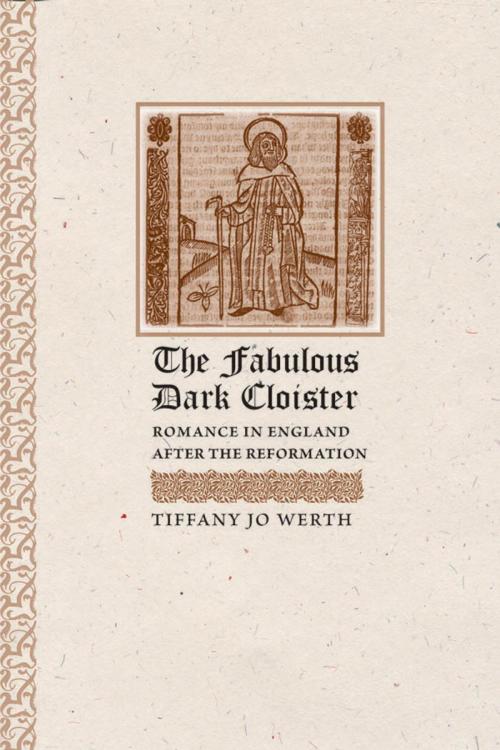The Fabulous Dark Cloister
Romance in England after the Reformation
Fiction & Literature, Literary Theory & Criticism, British, Theory| Author: | Tiffany J. Werth | ISBN: | 9781421404400 |
| Publisher: | Johns Hopkins University Press | Publication: | December 1, 2011 |
| Imprint: | Language: | English |
| Author: | Tiffany J. Werth |
| ISBN: | 9781421404400 |
| Publisher: | Johns Hopkins University Press |
| Publication: | December 1, 2011 |
| Imprint: | |
| Language: | English |
Romances were among the most popular books in the sixteenth and seventeenth centuries among both Protestant and Catholic readers. Modeled after Catholic narratives, particularly the lives of saints, these works emphasized the supernatural and the marvelous, themes commonly associated with Catholicism. In this book, Tiffany Jo Werth investigates how post-Reformation English authors sought to discipline romance, appropriating its popularity while distilling its alleged Catholic taint.
Charged with bewitching readers, especially women, into lust and heresy, romances sold briskly even as preachers and educators denounced them as papist. Protestant reformers, as part of their broader indictment of Catholicism, sought to redirect certain elements of the Christian tradition, including this notorious literary genre. Werth argues that through the writing and circulation of romances, Protestants repurposed their supernatural and otherworldly motifs in order to "fashion," as Edmund Spenser wrote, godly "vertuous" readers.
Through careful examinations of the period’s most renowned romances—Sir Philip Sidney’s The Countess of Pembrokes Arcadia, Spenser’s The Faerie Queen, William Shakespeare’s Pericles, and Lady Mary Wroth’s Urania—Werth illustrates how post-Reformation writers struggled to transform the literary genre. As a result, the romance, long regarded as an archetypal form closely allied with generalized Christian motifs, emerged as a central tenet of the religious controversies that divided Renaissance England.
Romances were among the most popular books in the sixteenth and seventeenth centuries among both Protestant and Catholic readers. Modeled after Catholic narratives, particularly the lives of saints, these works emphasized the supernatural and the marvelous, themes commonly associated with Catholicism. In this book, Tiffany Jo Werth investigates how post-Reformation English authors sought to discipline romance, appropriating its popularity while distilling its alleged Catholic taint.
Charged with bewitching readers, especially women, into lust and heresy, romances sold briskly even as preachers and educators denounced them as papist. Protestant reformers, as part of their broader indictment of Catholicism, sought to redirect certain elements of the Christian tradition, including this notorious literary genre. Werth argues that through the writing and circulation of romances, Protestants repurposed their supernatural and otherworldly motifs in order to "fashion," as Edmund Spenser wrote, godly "vertuous" readers.
Through careful examinations of the period’s most renowned romances—Sir Philip Sidney’s The Countess of Pembrokes Arcadia, Spenser’s The Faerie Queen, William Shakespeare’s Pericles, and Lady Mary Wroth’s Urania—Werth illustrates how post-Reformation writers struggled to transform the literary genre. As a result, the romance, long regarded as an archetypal form closely allied with generalized Christian motifs, emerged as a central tenet of the religious controversies that divided Renaissance England.















